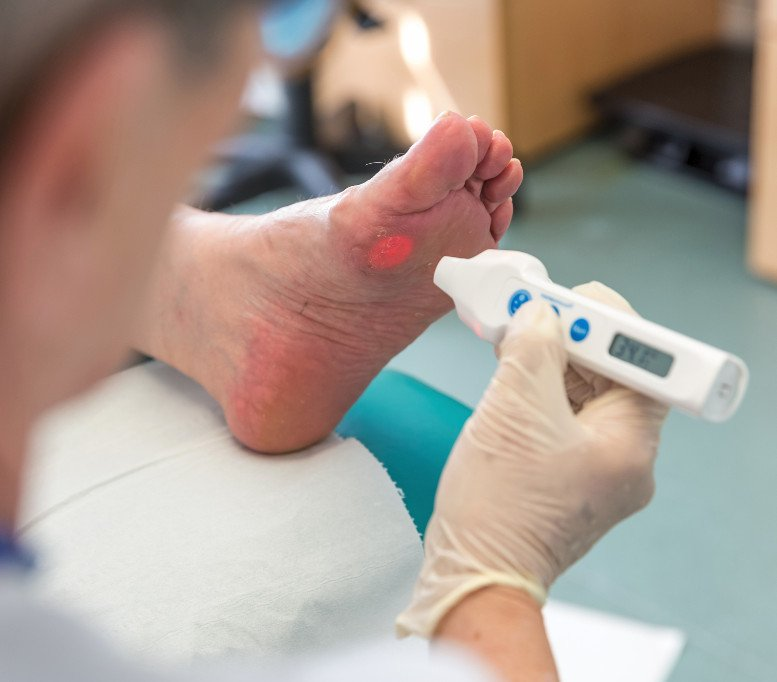Recall Guidelines and NICE Guidance
Recall Guidelines
As a person living with diabetes, there may be changes occurring in your feet, we advise a Diabetic Assessment on a yearly basis, (in addition to your annual NHS Review). We also advise General Footcare on a regular basis, as recommended by your Podiatrist at your Assessment.
You can book by phone or online:
By phone: please call us on 01442 249080
Online: book a Diabetic Assessment appointment at
www.betafeetpodiatry.co.uk/book-online
We will be delighted to see you again!
Key priorities for General management of the Diabetic Patient
Following the NICE Guideline – Type 2 diabetes: prevention and management of foot problems 27
-
Effective care involving a partnership in decision making between patients and professionals.
-
Recall and annual review as part of ongoing care.
-
Annual review examining patients’ feet to detect risk factors for ulceration.
-
Examination of patients’ feet should include:
-
testing of foot sensation using a 10 g monofilament or vibration
-
palpation of foot pulses
-
inspection of any foot deformity and footwear
-
Classification of foot risk as: at low current risk; at increased risk; at high risk; ulcerated foot.
Care of people at low current risk of foot ulcers (normal sensation, palpable pulses)
-
Agree a management plan including foot care education with each person.
Care of people at increased risk of foot ulcers (neuropathy or absent pulses or other risk factor)
-
Arrange regular review, 3–6 monthly.
-
At each review:
-
inspect patient’s feet
-
consider need for vascular assessment
-
evaluate footwear
-
enhance foot care education
-
If patient has had previous foot ulcer or deformity or skin changes manage as high risk.
Care of people at high risk of foot ulcers (neuropathy or absent pulses plus deformity or skin changes or previous ulcer)
-
Review (1–3 monthly).
-
At each review:
-
inspect patient’s feet
-
consider need for vascular assessment
-
evaluate and ensure the appropriate provision of intensified foot care education
-
specialist footwear and insoles
-
Skin and nail care.
-
Evaluate arrangements for those people with disabilities or immobility.
Care of people with foot care emergencies and foot ulcers
-
Foot care emergency (new ulceration, swelling, discolouration)
-
Emergency appointment slots are available at the end of each session.
-
Refer to multidisciplinary foot care team within 24 hours to:
-
investigate and treat vascular insufficiency
-
initiate and supervise wound management which may include:
-
dressings and debridement as indicated
-
systemic antibiotic therapy for cellulitis or bone infection as indicated
-
ensure an effective means of distributing foot pressures, including specialist footwear, orthotics and casts
-
Try to achieve optimal glucose levels and control of risk factors for cardiovascular disease.






